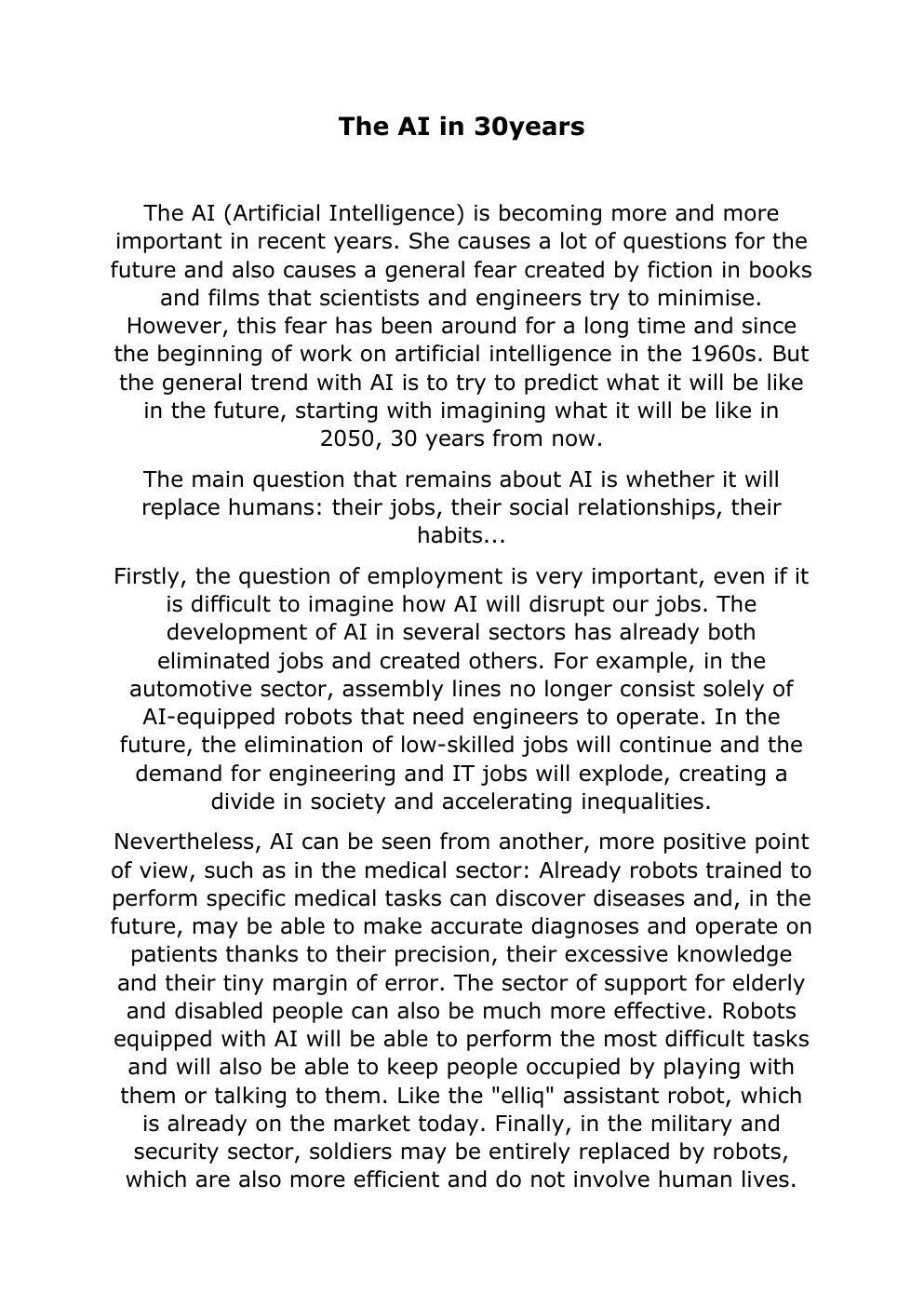The AI in 30 years
Publié le 21/04/2022

Extrait du document
«
The AI in 30years
The AI (Artificial Intelligence) is becoming more and more
important in recent years.
She causes a lot of questions for the
future and also causes a general fear created by fiction in books
and films that scientists and engineers try to minimise.
However, this fear has been around for a long time and since
the beginning of work on artificial intelligence in the 1960s.
But
the general trend with AI is to try to predict what it will be like
in the future, starting with imagining what it will be like in
2050, 30 years from now.
The main question that remains about AI is whether it will
replace humans: their jobs, their social relationships, their
habits...
Firstly, the question of employment is very important, even if it
is difficult to imagine how AI will disrupt our jobs.
The
development of AI in several sectors has already both
eliminated jobs and created others.
For example, in the
automotive sector, assembly lines no longer consist solely of
AI-equipped robots that need engineers to operate.
In the
future, the elimination of low-skilled jobs will continue and the
demand for engineering and IT jobs will explode, creating a
divide in society and accelerating inequalities.
Nevertheless, AI can be seen from another, more positive point
of view, such as in the medical sector: Already robots trained to
perform specific medical tasks can discover diseases and, in the
future, may be able to make accurate diagnoses and operate on
patients thanks to their precision, their excessive knowledge
and their tiny margin of error.
The sector of support for elderly
and disabled people can also be much more effective.
Robots
equipped with AI will be able to perform the most difficult tasks
and will also be able to keep people occupied by playing with
them or talking to them.
Like the "elliq" assistant robot, which
is already on the market today.
Finally, in the military and
security sector, soldiers may be entirely replaced by robots,
which are also more efficient and do not involve human lives..
»
↓↓↓ APERÇU DU DOCUMENT ↓↓↓
Liens utiles
- A Communist regime since 1945 and completely cut off from the outsideworld for thirty years, Albania opened its frontiers in 1990.
- Hanif Kureishi - The Buddha of Suburbia
- does the end justifies the means
- the handmaid's tale: How far do you agree that Margaret Atwood makes resistance central to THT?
- La surprise au cinéma - Critique The King of Staten Island et Annette


